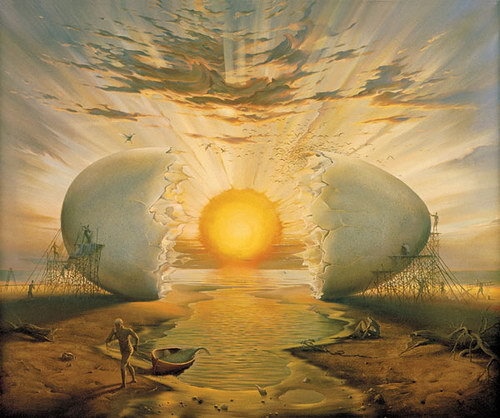Sunday, May 30, 2010
Patience is a Virtue but that doesn't mean it's EASY
I was very fortunate to have such an amazing Professor (Van Slyck) last semester, who held my hand and walked me through the “whole researching journey”. That is probably why it wasn’t too hard for me to find articles but I did have to constantly try different word searches. That eventually did take a bit of a toll on me. However, I kept telling myself how important this Annotated Bibliography was, and that’s what gave me the push to continue and finally finish. I had to be patient and determined. The most useful research skill I used was trying different words in the search key on EBSCO or on JSTOR. I was also actually super happy when I saw I could read the whole inside of The Odyssey because I knew I was done with what I thought would be the most difficult. A positive and negative was that I found so many interesting articles, that I couldn’t decide on just one topic because I felt I know had so much to say. Nevertheless, I am happy I came upon all the articles I did because though I won’t use all of them, I did learned about myths and different perspectives that I would have not thought of in a billion years.
Sunday, May 9, 2010
More similarities than your fingers can hold
In Short Friday, by Isaac Bashevis Singer and Babette’s Feast, by Isak Dinesen, there are more similarities than just both these author’s names being Isaac/Isak. Both stories show the significance and impact food has had on them through a significant event. In Short Friday, Shmul-Leible and Shoshe honor their Sabbath “feast”, as they enjoy good food together while reading and singing prayers. However, in Babette’s Feast, Martine and Philippa grow compassionate towards Babette; by her artistry in cooking they become more grateful than ever. Through these similar but diverse stories we see the powerful effect food can have on literature’s characters.
Some similarities in both Short Friday and Babette’s Feast are that they deal with religiously devout characters. Shmul-Leible, Shoshe, Martine, and Philippa may be of a different religion, yet they all practice their faith earnestly. Both stories also talk of the afterlife; obviously being religious they believe in a life to come after we die with Paradise or “Heaven” being called out precisely. In Short Friday, an Angel comes and takes both Shoshe and her husband to Paradise when in Babette’s Feast Philippa embraces Babette and tells her that her art is never a loss, because in Paradise she will be all God wants her to be. Also, we see affection and sexuality, though Babette’s feast only tells of a kiss, yet it only takes a kiss to start something. However, both daughters run from any affection that could one day be marital to continue the sect and legacy their father had started. Nevertheless, Shoshe gives in to her husbands “new tricks” of affection, though it crosses the line of what is allowed in their Jewish religion. Another very interestingly similarity is that Shmul-Leible and Lorens Loewenhielm both had a case of home-sickness. Shmul-Leible lived a short home-sickness because we would anticipate finally going home and seeing his beautiful wife; telling her how great her food is. On the other hand, Lorens Loewenhielm was not from Norway, where it was Martine’s actual home city, but with her beauty and him falling in such love with her, it in a sense became his home because he would continuously visit her house. Yet, this “home” he had created made him feel so small and worthless at the same time because he never had the guts to tell her of his feelings but years later he returns and tells Martine that he has never forgotten her and never will. Both these men are looked upon as more manly through their “homesickness” because they always remember their “home”. Yet, through all these similarities, I think the most obvious is how these characters express their deep love for those around them. Shoshe cooks the most delightful food she can afford for her noble husband and Babette uses all her lottery money for Martine, Philippa and other guest’s feast to not only be of use in her creativeness, but also to show her great love for Martine and Philippa.
Though I explained few differences, it is simple to see that all their appetites whether it is sexual, creative, or actual hunger are explained through food. Both authors use food, paradise, religion, sexuality, and much more to get their point across. The point that came across to me is that food is extremely important and when joined with many other things they have a significant impact which could one day lead you to Paradise.
Some similarities in both Short Friday and Babette’s Feast are that they deal with religiously devout characters. Shmul-Leible, Shoshe, Martine, and Philippa may be of a different religion, yet they all practice their faith earnestly. Both stories also talk of the afterlife; obviously being religious they believe in a life to come after we die with Paradise or “Heaven” being called out precisely. In Short Friday, an Angel comes and takes both Shoshe and her husband to Paradise when in Babette’s Feast Philippa embraces Babette and tells her that her art is never a loss, because in Paradise she will be all God wants her to be. Also, we see affection and sexuality, though Babette’s feast only tells of a kiss, yet it only takes a kiss to start something. However, both daughters run from any affection that could one day be marital to continue the sect and legacy their father had started. Nevertheless, Shoshe gives in to her husbands “new tricks” of affection, though it crosses the line of what is allowed in their Jewish religion. Another very interestingly similarity is that Shmul-Leible and Lorens Loewenhielm both had a case of home-sickness. Shmul-Leible lived a short home-sickness because we would anticipate finally going home and seeing his beautiful wife; telling her how great her food is. On the other hand, Lorens Loewenhielm was not from Norway, where it was Martine’s actual home city, but with her beauty and him falling in such love with her, it in a sense became his home because he would continuously visit her house. Yet, this “home” he had created made him feel so small and worthless at the same time because he never had the guts to tell her of his feelings but years later he returns and tells Martine that he has never forgotten her and never will. Both these men are looked upon as more manly through their “homesickness” because they always remember their “home”. Yet, through all these similarities, I think the most obvious is how these characters express their deep love for those around them. Shoshe cooks the most delightful food she can afford for her noble husband and Babette uses all her lottery money for Martine, Philippa and other guest’s feast to not only be of use in her creativeness, but also to show her great love for Martine and Philippa.
Though I explained few differences, it is simple to see that all their appetites whether it is sexual, creative, or actual hunger are explained through food. Both authors use food, paradise, religion, sexuality, and much more to get their point across. The point that came across to me is that food is extremely important and when joined with many other things they have a significant impact which could one day lead you to Paradise.
Subscribe to:
Posts (Atom)


